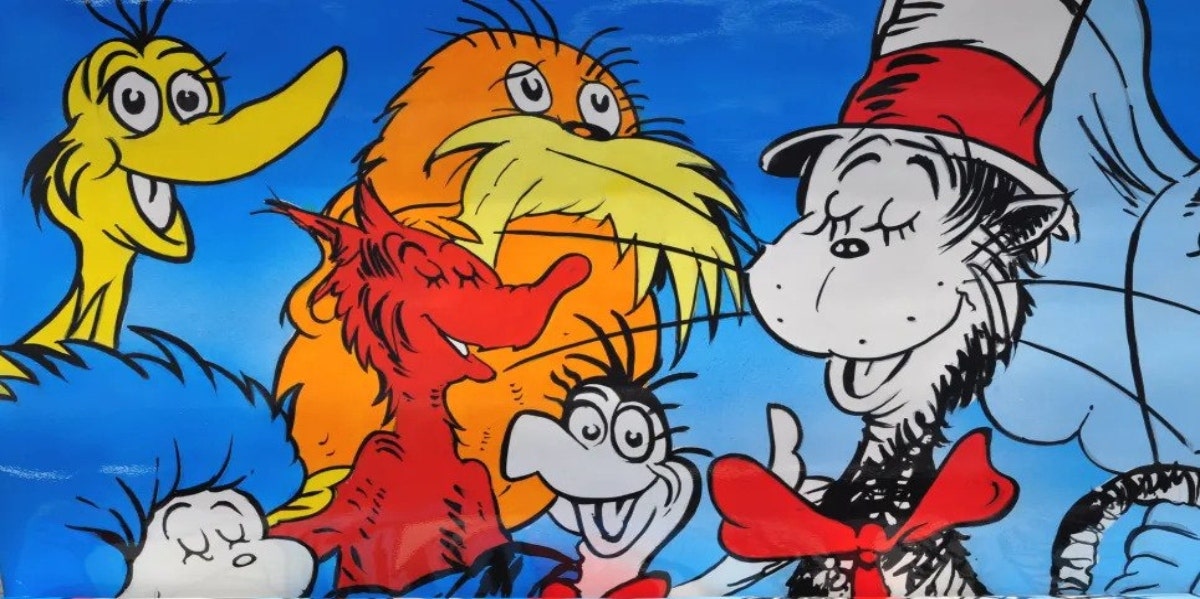Why These 6 Famous Dr. Seuss Books Are Being Cancelled
The author's harmful portrayals of people of color are finally being called out.
 Ron Ellis / Shutterstock.com
Ron Ellis / Shutterstock.com Six books written and illustrated by Dr. Seuss are going out of production due to a longstanding controversy over their contents.
Dr. Seuss, born, born Theodor Seuss Geisel, is one of the world’s most famous and renowned authors of children’s books. But some of his books have stirred up a negative reaction in recent years due to what people feel are racist and insensitive portrayals of people of color.
Why will these six Dr. Seuss books stop being published?
The books, which were originally published between 1937 and 1976, contain imagery and depictions said to be particularly harmful to the Black and Asian communities.
Already, the past number of years have seen parents, teachers, and specialists drifting away from the author’s work in an effort to avoid exposing children to the racism they demonstrate.
A Virginia school district spoke out about their decision to no longer emphasize Dr. Seuss as part of their curriculum just this week. And back in 2017, the then-First Lady Melania Trump drew criticism for gifting a collection of Dr. Seuss books to a library.
The build-up of these events likely contributed to Dr. Seuss Enterprises, the company the protects the legacy of the author, making the decision to cease production of six of the author’s most controversial titles.
“These books portray people in ways that are hurtful and wrong,” Dr. Seuss Enterprises wrote in their statement, “Ceasing sales of these books is only part of our commitment and our broader plan to ensure Dr. Seuss Enterprises’s catalog represents and supports all communities and families.”
So far 6 books are going out of production and it is unclear if the enterprise plans on reviewing other works. Keep reading to find out what about these books has stirred up a negative response.
Here are the 6 Dr. Seuss books going out of production and why they’re considered offensive.
1. "And to Think That I Saw It on Mulberry Street"
Originally published: December 21, 1937
The book contributes to stereotypes of Asian people by portraying an Asian character, referred to only as “Chinaman”, wearing a conical hat, holding chopsticks, and eating from a bowl.
2. "If I Ran the Zoo"
Originally published: 1950, under the title "If I Got To The Zoo"
Two African men are shown barefoot, wearing grass skirts, with their hair tied above their heads. This perpetuates the inaccurate notion that African people are uncivilized.
A white male also says he is going to put a person of color wearing a turban on display in a zoo, which implies a dehumanization of people of color.
3. "McElligot’s Pool"
Originally published: 1947
The book refers to Inuit people from the northern circumpolar region by the term, “Eskimo”, which is widely regarded as outdated and offensive since it is was historically used by colonizers or as a derogatory term.
4. "On Beyond Zebra!"
Originally published: 1955
Dr. Seuss again attributes stereotypes and engages in the exotification of non-white characters by showing a man on a camel wearing an oversized turban and a long mustache.
These exaggerated images of people of color make them unrelatable and open to mimicry. This also prevents people of color from finding accurate portrayals of themselves.
5. "Scrambled Eggs Super!"
Originally published: 1953
The book implies that people of color should be subservient to white people by telling a man wearing a turban to go fetch an egg for the main character. This character is then attacked by birds while completing the task.
On the rare occasions where Dr. Seuss does portray characters of color, they are often seen serving white people.
6. "The Cat’s Quizzer"
Originally published: August 12, 1976
The book asks a series of questions, one of which is “What do the Japanese eat with pogo sticks or joss sticks?”. This is accompanied by an image of chopsticks and appears to ridicule Japanese culture by mocking their eating utensils.
Prior to releasing this book, Dr. Seuss worked on several war propaganda films that were made to indoctrinate the US military into believing the Japanese were “backward” and needed to be re-educated.
Alice Kelly is a writer living in Brooklyn, New York. Catch her covering all things social justice, news, and entertainment.

